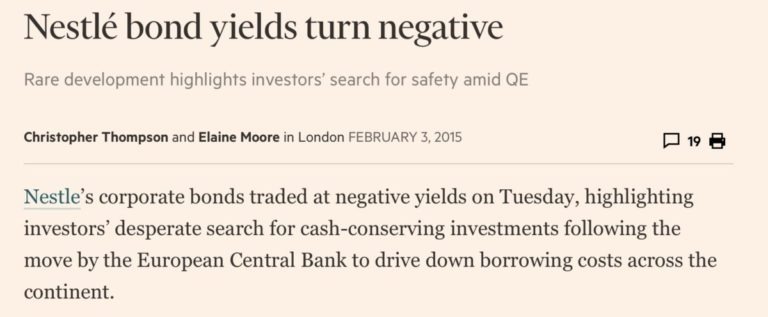Can You Time Peak Crazy?
by Michael Krieger, Liberty Blitzkrieg:

You don’t need me to tell you how completely crazy and distorted the financial markets have become over the last decade. Anyone reading this already knows that, which is partly why I stopped writing on the topic several years ago. I came to the conclusion there was no point in constantly screaming at the top of my lungs about what a farce the global financial system was. Instead, I decided to step back, let things play out to their predictably tragic end, and then play closer attention as the curtains started to come down. As has been made clear in my recent commentary, I think we’re now reaching that point.

I’ve begun reflecting a little more about the lessons I’ve learned over the past several years of status quo stupidity, and one particular conversation I had a while ago with a friend who was a portfolio manager at a major hedge fund came to mind. I searched my old emails to find exactly what I had written, and the response became the inspiration for the title of today’s post.
The correspondence occurred nearly four years ago, in February 2015. His initial message highlighted a FT article about the fact that Nestlé bond yields had turned negative. This was my response to his email:
Once you enter certifiably “crazy” territory it becomes almost impossible to bet against crazy until it is obvious it is all unraveling. Once in crazy territory it can easily get more crazy since crazy has already been established.
The above is why you should never bet money against crazy simply because it’s crazy. Crazy can go on for a long time, especially when the people in charge see themselves as gods sent from the heavens to deliver the planet from the horrors of declining asset prices and lower financial industry bonuses.
But crazy always ends at some point, and the crazier the period preceding the reckoning, the more intense and disruptive the subsequent period will be.
Did the last 10 years represent the biggest global asset bubble in world history?
— Michael Krieger (@LibertyBlitz) 14 January 2019
I tend to think yes when thinking about the above, and if that’s right, then the consequences of the largest asset bubble in history would likewise be historic. At the least we’re going to have a total change to the global financial system, the sort of thing that typically happens only once a lifetime. That’s the conservative take.
The more radical assessment would be that the largest asset bubble in world history will be followed by a level of disruption and change that only happens every few hundred years. The period of time that seems most similar to this one in (sorta) recent history would be the late 18th century, when we witnessed revolutions in the 13 American colonies and in France that changed the world dramatically for centuries to come. That’s the level of change I suspect we’ll see, and even that could be conservative given the pace of technological change we’re living through.
Central bank policy can stay crazy longer than the social structure can remain stable.#Paybacktime
— Michael Krieger (@LibertyBlitz) 14 January 2019
We’ve already seen the warning shots, as the social and political structures of many countries are already pretty far along the path of major transformation. Trump’s election, Brexit, the Yellow Vest and the Italy’s elections, just to name a few. Significantly, many of these things went down while the financial market bubble was still propped up and inflating. What will happen on the social and political level when the market cycle really turns is anybody’s guess, but you can be assured it won’t be business as usual.
Read More @ LibertyBlitzkrieg.com
Loading...


